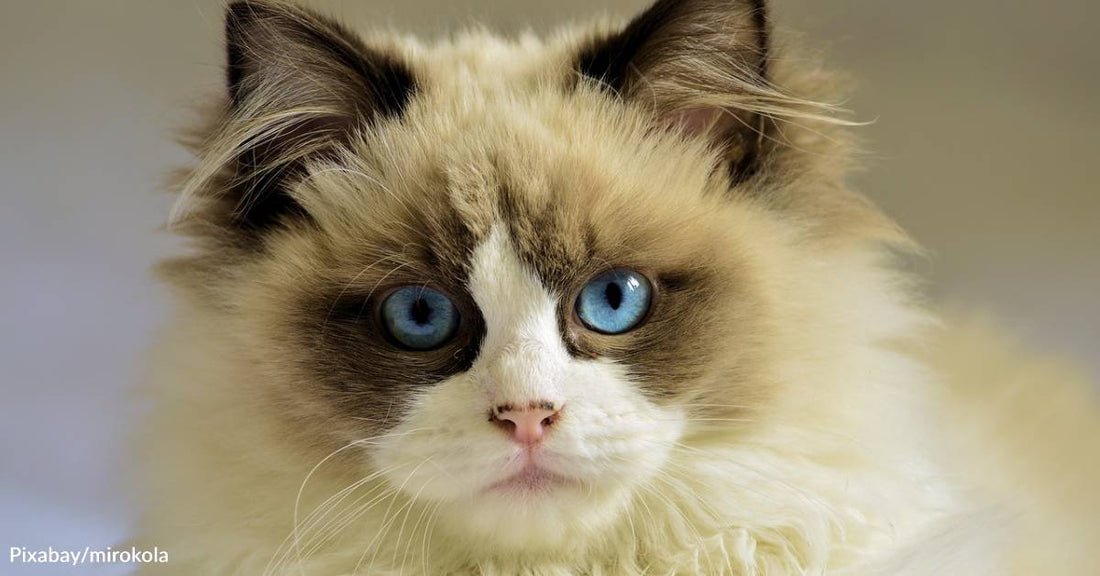Experts Say Cats Aren't Seeing Veterinarians Nearly as Often as They Should
Rebecca West
According to professionals, cats are getting the short end of the stick when it comes to annual medical care versus dogs. But why is that? Cat people love their pets just as much as dog people, right? Maybe they just assume they're healthier because they don't recognize the signs of illness in felines as easily as one might with dogs.
"In 2021, 81.8 percent of the dog population visited a vet, versus only 39.8 percent of cats," Dr. Casey Locklear, a veterinarian and senior medical lead at Zoetis, told the HuffPost. "The journey to the veterinarian looks a little different for every pet owner, however, there are some fundamental differences that can drive this disparity."
Cat Ownership Misconceptions
Also contacted about the reasons cats aren't seen by vets as regularly as dogs are was Dr. Mondrian Contreras, a veterinary expert at Pumpkin Pet Insurance.
Many people are under the mistaken impression that cat ownership will be easier or less expensive. While this can be true to some extent, each individual animal is different. Even if your cat's fairly low-maintenance, it's no assurance that they'll never need medical care.
"The biggest reason for the disparity between cat and dog vet visits is due to the perception of cats by their owners," Contreras noted. "Most cat owners see these pets as low maintenance, and if they don't see anything glaringly abnormal, they feel they are healthy. These owners obviously love animals, but if they are extremely busy, then taking them for yearly checkups is just hard to fit in the busy schedule, especially if nothing seems wrong."
Stealth Kitties
Another good point was raised by Dr. Locklear. "Since cats are prey animals, they are more likely to hide their pain than dogs," they explained. "This means it can be difficult to detect subtle shifts in your beloved furball's behavior."
This inclination to hide physical pain or distress can make it hard to know whether your cat is experiencing any medical issues. That's why it's vital that they receive annual checkups at regularly scheduled vet visits.
"Partner with your veterinarian for regular checkups to catch pain and illness early, allowing for needed care so your pet can continue to live their best life," Locklear continued.
Bigger Issues on the Horizon
Since our feline friends are so good at hiding problems, you could be looking at massive medical bills by the time the illness is caught or faced with putting the animal down, otherwise.
"Lack of veterinary care in cats can be problematic for many reasons, but simply put, you don't know what you don't know,” Locklear stated. "By not seeking annual wellness visits, there can be substantial missed opportunity to detect and intervene in disorders like chronic kidney disease, parasitism, and osteoarthritis early. Early intervention can help keep your wonderful feline feeling its best."
Contreras agreed, adding that felines suffer from several of the very same medical maladies that dogs do — many of them preventable or treatable — such as dental disease, obesity, endocrine disease, allergies, and others.
"These can be treated successfully if able to address these conditions early before they become a bigger problem,” he continued. "For example, resorptive lesions can affect up to 50 percent or more of all cats, but can be easily treated, which will help prevent severe chronic pain."
Feline Detectives
The experts say that the ability to detect even minor changes in your putty tat’s weight or vitals over the previous year could be greatly beneficial for recognizing potential medical issues.
"I often hear sentiments of, 'Well, we took our pet for its annual appointment, but they didn't find anything,'" Locklear said. "It's essential to realize when you take your pet to the vet ― that is a big win for your pet, and in this case, no news is good news! I want to encourage cat owners to be a wellness advocate for their cat and feel good about the opportunity for care that you just provided your lovable feline."
She also suggested taking a moment to discuss any needed vaccinations or parasite prevention with your vet, which so many cat owners are under the impression their pets don't need because of the life they lead. But "An ounce of prevention really is worth a pound of cure," Locklear stressed.





